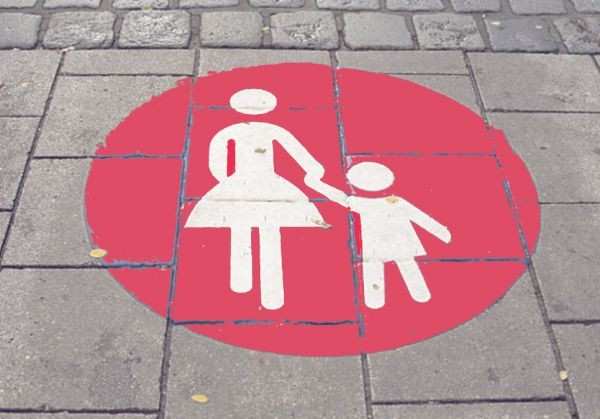I’m a fan of Moms Pump Here because it’s the perfect mix of creativity, problem solving, and women supporting other women. To me, it represents genius born of the maternal experience. Moms deal daily with multiple demands, usually conflicting and all happening at the same time. We have limited resources of time, money, and our own energy. Yet most nights, by the time we fall into bed, our families are safe, fed, and loved. We know we can look to each other for help, and Moms Pump Here delivers.
We mother in a country where parents generally, and women, in particular, are severely underserved by their elected policy makers. When the market economy and public policy totally fail us, we come up with amazing solutions. In this context, every addition to the growing list of lactation rooms is another strike for women’s progress. Like job rating sites List Your Leave or InHerSight, MPH makes essential information for mothers available at your fingertips. We have to use this data - every other resource we can - to change the sorry state of women’s leadership in the US, where the US Supreme Court is the only governmental body to reach 30% female representation, women comprise 4.2% of Fortune 500 CEO’s and women’s poverty rate is higher than men’s at every age, and much higher over age 65.
It’s necessary that women make our way into every industry at every level in every community in the nation. In my work at the Caring Economy Campaign, I’ve learned that societies where women’s status is closer to men’s have higher standards of living, faster-growing economies, less poverty, more robust democracies, and better health. When the gender pay gap is small and women and men fill the legislature in similar numbers, crime rates are lower, kids stay in school longer, child abuse and intimate partner violence occurs less often, and fewer women die from pregnancy-related conditions. Also, when the negotiation table is surrounded by women as well as men, peace agreements last longer and nations are more secure.
So what’s holding women back?
Our lack of a nationally guaranteed paid family leave program is a big clue. Our culture and our policies ignore the economic contribution of care. In spite of the mountain of evidence that paid family leave for both parents is pay off in terms of health, family financial security, and the employer’s profits, the US has no such program. Nearly every other country on earth does. The US invests the least in early childhood education and care than other developed nations, as a percentage of GDP, and only a third of the amount Nordic countries do on long term care for the elderly or chronically ill.
So who picks up the slack? Usually women, doing unpaid care within families, or as direct care workers in nursing facilities, home health aides, or child care providers. They earn, on average, less than parking lot attendants, dog walkers, or golf caddies. Our history of gender-specific behavior means women spend more time on care than men. That care is either unpaid or poorly paid, leading to women’s fewer years of work, low numbers in board rooms and C suites, and a pay gap stuck at about 20% for years.
Women with children know their communities in a profound way. Motherhood connects us with stores, libraries, service-providers, educators, banks, and myriad other individuals and entities. To leverage our knowledge and experience, we must be able to go anywhere and everywhere our inclination and ambition take us. For the first time in human history, we are better educated than men and employed in similar numbers (although heavily segregated into lower paid job sectors). We are more engaged in the world than women have ever been – but the spaces and places, public and private institutions of that world were not made by us, or for us, or even with us in mind. So, we change them.
Moms, pump here. Live here, shop here, go to school here, travel here, work here, buy here, run here, play here, parent here, thrive here. Moms pump here!


